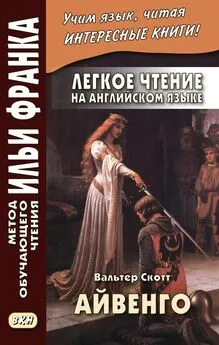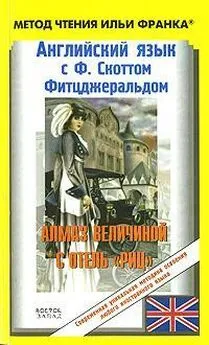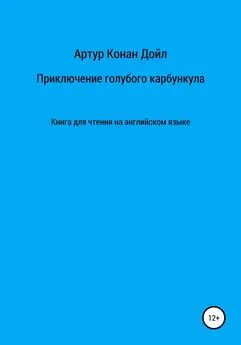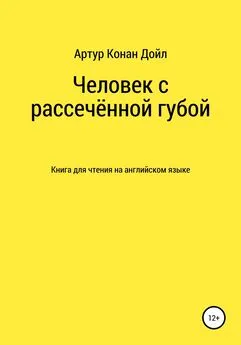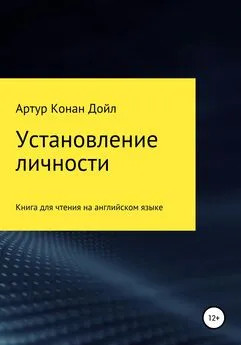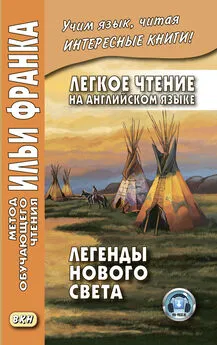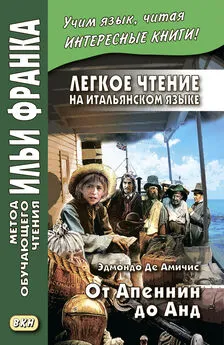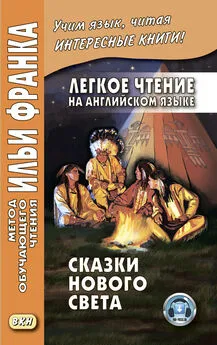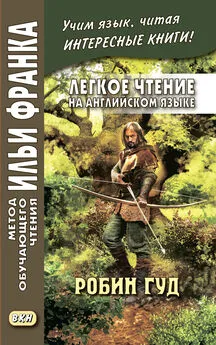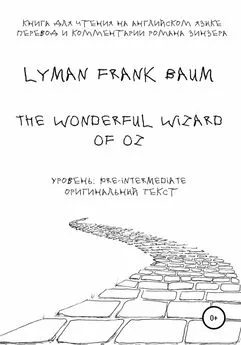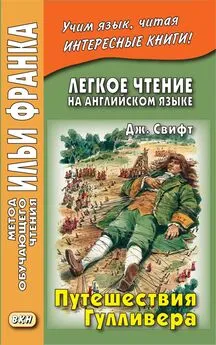Вальтер Скотт - Легкое чтение на английском языке. В. Скотт. Айвенго / Sir Walter Scott. Ivanhoe
- Название:Легкое чтение на английском языке. В. Скотт. Айвенго / Sir Walter Scott. Ivanhoe
- Автор:
- Жанр:
- Издательство:неизвестно
- Год:2022
- Город:Москва
- ISBN:978-5-7873-1910-1
- Рейтинг:
- Избранное:Добавить в избранное
-
Отзывы:
-
Ваша оценка:
Вальтер Скотт - Легкое чтение на английском языке. В. Скотт. Айвенго / Sir Walter Scott. Ivanhoe краткое содержание
Уникальность метода заключается в том, что запоминание слов и выражений происходит за счет их повторяемости, без заучивания и необходимости использовать словарь.
Пособие способствует эффективному освоению языка, может служить дополнением к учебной программе.
Для широкого круга лиц, изучающих английский язык и интересующихся английской культурой.
Легкое чтение на английском языке. В. Скотт. Айвенго / Sir Walter Scott. Ivanhoe - читать онлайн бесплатно ознакомительный отрывок
Интервал:
Закладка:
“Do not let that man leave Ashby(не дайте этому человеку покинуть Эшби) ,” he told his guards angrily(он сказал своим стражникам сердито; guard – охрана, защита; караул, конвой, охрана, стража /группа людей, охраняющих кого-либо/что-либо/ ).
straight[streɪt] , blushing[‘blʌʃɪŋ], guard[ɡɑ:d]
The Disinherited Knight rode straight past all of the blushing Norman ladies and stopped in front of the Lady Rowena, laying the crown at her feet.
“Long live the Lady Rowena, the Queen of Love and Beauty!” shouted the tournament crowd.
As he turned to leave, Prince John’s eyes fell on the archer who had made him angry earlier.
“Do not let that man leave Ashby,” he told his guards angrily.
When the Disinherited Knight reached his tent(когда рыцарь Лишенный наследства добрался до своего шатра; to reach – протягивать, вытягивать; доезжать до; добираться до ) , he spoke to his servant(он заговорил со своим слугой) , a man in a big black robe(мужчиной в свободном: «большом» черном одеянии).
“Gurth,” said the Knight, “thank you for coming to help me here(спасибо, что пришел помочь мне здесь) . I was afraid that someone might recognize you(я боялся, что кто-нибудь может узнать тебя; to recognize – осознавать, постигать; узнавать, опознавать /мелодию, лицо, вообще кого-либо или что-либо виденное, знакомое ранее/ ) .”
“I am not afraid of being recognized by anyone(я не боюсь быть узнанным никем) except my old friend Wamba(кроме моего старого друга Вамбы; except – исключая, кроме, за исключением ) ,” answered Gurth.
robe[rǝʋb] , recognize[‘rekǝɡnaɪz] , except[ɪk’sept]
When the Disinherited Knight reached his tent, he spoke to his servant, a man in a big black robe.
“Gurth,” said the Knight, “thank you for coming to help me here. I was afraid that someone might recognize you.”
“I am not afraid of being recognized by anyone except my old friend Wamba,” answered Gurth.
“Take this bag of gold to Ashby(возьми = отнеси этот кошель с золотом в Эшби) . Find Isaac of York(найди Исаака из Йорка) and pay him back for the horse and armour(и заплати ему за коня и доспехи; to pay back – вознаграждать, отплачивать ) .”
Gurth took the bag(Гурт взял кошель) and went off to the town of Ashby(и ушел в город Эшби) , where he found Isaac and gave him the money(где он нашел Исаака и отдал ему деньги).
find[faɪnd] , gold[ɡǝʋld] , armour[‘ɑ:mǝ]
“Take this bag of gold to Ashby. Find Isaac of York and pay him back for the horse and armour.”
Gurth took the bag and went off to the town of Ashby, where he found Isaac and gave him the money.
4
At sunrise the next day(на утренней заре следующего дня; sunrise – восход солнца; утренняя заря; утро, начало дня ) , the heralds were already busy(герольды были уже заняты тем; busy – деятельный, занятой; занятый ) writing down the names of the hundred knights(что записывали имена сотни рыцарей; to write down – записывать ) who were going to take part in the second day’s battle(которые собирались принять участие в сражении второго дня; to take part – принимать участие, участвовать в чем-либо; battle – битва, сражение, бой ) . According to the tournament rules(согласно правилам турнира) , the Disinherited Knight would lead one side(рыцарь Лишенный наследства возглавлял одну сторону = один отряд рыцарей; to lead – вести, сопровождать; возглавлять, руководить, управлять, командовать; side – сторона; команда /как одна из сторон спортивного состязания/ ) , and the Templar, who was judged to be second-best in the fighting the day before(а рыцарь храма, который был признан вторым: «вторым лучшим» в поединках предыдущего дня; to judge – судить, выносить приговор; оценивать, судить ) , would lead the other side(возглавлял другую сторону = другой отряд).
sunrise[‘sʌnraɪz] , busy[‘bɪzɪ] , judge[dʒʌdʒ]
At sunrise the next day, the heralds were already busy writing down the names of the hundred knights who were going to take part in the second day’s battle. According to the tournament rules, the Disinherited Knight would lead one side, and the Templar, who was judged to be second-best in the fighting the day before, would lead the other side.
Around ten o’clock(около десяти часов) , the heralds blew their trumpets(герольды затрубили в трубы; to blow – веять, дуть /о ветре/; играть мелодию и т. п. /на духовом инструменте/; давать сигнал /подъема, тревоги и т. п. с помощью трубы, горна и т. п./ ) to announce the arrival of Prince John(чтобы возвестить о прибытии принца Джона).
When Cedric arrived with the Lady Rowena a moment later(когда Седрик прибыл с леди Ровеной мгновением позже) , he was very surprised to see(он был очень удивлен, увидев) that Athelstane had joined the side of the Templar(что Ательстан присоединился к стороне рыцаря храма) . Athelstane had secretly been very angry(Ательстан втайне был очень рассержен) to see the Disinherited Knight choose Rowena as the Queen of Love and Beauty the day before(увидев, что рыцарь Лишенный наследства выбрал Ровену королевой любви и красоты накануне; day before – накануне ) . He was therefore determined(он поэтому был полон решимости; to determine – определять, устанавливать /с помощью расчетов, рассуждений и т. п./; решаться, принимать решение ) to punish the Knight for this in the fighting(наказать рыцаря за это в поединке).
arrival[ǝ’raɪv(ǝ)l] , surprise[sǝ’praɪz], join[dʒɔɪn] , determined[dɪ’tǝ:mɪnd], punish[‘pʌnɪʃ]
Around ten o’clock, the heralds blew their trumpets to announce the arrival of Prince John.
When Cedric arrived with the Lady Rowena a moment later, he was very surprised to see that Athelstane had joined the side of the Templar. Athelstane had secretly been very angry to see the Disinherited Knight choose Rowena as the Queen of Love and Beauty the day before. He was therefore determined to punish the Knight for this in the fighting.
When Prince John saw(когда принц Джон увидел) that the Queen of the tournament had arrived(что королева турнира уже прибыла) , he rode forward to meet her(он поскакал /вперед/ навстречу ей: «чтобы встретить ее») and led her to sit beside him in the royal gallery(и повел ее, чтобы посадить ее рядом с собой в королевской галерее; to lead – вести, сопровождать, быть проводником; вести /например, за руку/ ).
A herald read out the rules for the second day of the tournament(один герольд зачитал правила второго дня турнира; to read out – прочитать вслух ) : Apart from their lances(кроме копий; apart from – не говоря уже о, кроме, не считая ) , this time the knights would also be allowed(на этот раз рыцарям также будет позволено; time – время; раз ) to use swords and battle-axes(пользоваться мечами и боевыми топорами/алебардами; to use – использовать, пользоваться, применять, употреблять ) . If a knight had been knocked off his horse(если рыцарь будет сброшен с коня) , he could continue fighting on foot(он сможет продолжить сражаться пешим; on foot – пешком ) , but a mounted horseman would not be allowed to attack him(но /сидящему на коне/ всаднику не будет позволено атаковать его; horseman – всадник; наездник; horse – конь ) . The fighting would stop(схватка должна будет прекратиться) as soon as Prince John gave the signal(как только принц Джон подаст знак/сигнал).
beside[bɪ’saɪd] , battle-axe[‘bætlæks], continue[kǝn’tɪnju:] , horseman[‘hɔ:smǝn]
When Prince John saw that the Queen of the tournament had arrived, he rode forward to meet her and led her to sit beside him in the royal gallery.
A herald read out the rules for the second day of the tournament: Apart from their lances, this time the knights would also be allowed to use swords and battle-axes. If a knight had been knocked off his horse, he could continue fighting on foot, but a mounted horseman would not be allowed to attack him. The fighting would stop as soon as Prince John gave the signal.
The knights rode into the lists(рыцари въехали /верхом/ на ристалище) and formed two groups of fifty men(и образовали две группы по пятьдесят человек; to form – придавать форму, придавать вид; составлять, образовывать ) at opposite ends of the lists(на противоположных концах арены) . They held their lances upright(они держали свои копья вертикально; upright – вертикально, прямо, стоймя ) and the points shone brightly in the sun(и /их/ наконечники сверкали ярко на солнце) . When the heralds blew their trumpets(когда герольды затрубили в трубы) , all the knights lowered their lances(все рыцари опустили свои копья) and galloped towards the centre of the lists(и галопом помчались к центру ристалища).
Читать дальшеИнтервал:
Закладка:
